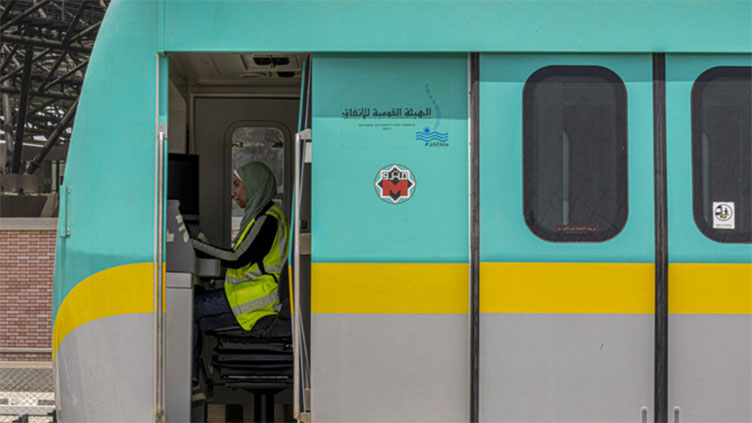Egypt's high-speed train network to connect more than 80 cities

Business
Four lines covering 2,250 km would link more than 80 Egyptian cities
(Wed Desk - Egypt was looking to establish a high-speed train network that would transform the country’s connectivity, experts have revealed.
Four lines covering 2,250 km would link more than 80 Egyptian cities and extend to neighboring countries such as Libya and Sudan.
Transport specialist Ahmed Al-Sanhouri told Arab News: “Egypt recently received the first regional express train, the Desiro HC. Manufactured by Siemens, this double-decker train has a capacity of 849 passengers and will operate at speeds of up to 160 kilometers per hour.
“The train has already been tested in the German city of Krefeld. And in addition to the Desiro HC, the Velaro train is being manufactured to operate at 250 kilometers per hour. There is also the Vectron train, operating at 120 kilometers per hour, which will serve as the goods train.”
On project specifics, he said: “The first line, covering a length of 660 kilometers, will connect Ain Sokhna, Alexandria, Alamein, and Matrouh near the Egyptian-Libyan border.
“A rapid transit system, this line will link the Red Sea and the Mediterranean, serving as the foundation for a broader strategic initiative to connect North African Arab countries.
“The second line, stretching 1,100 kilometers, will link October, Aswan, and Abu Simbel. This route will enhance relationships between Egypt and Sudan while promoting development in Upper Egypt’s governorates. The line also aims to halve the travel time from Cairo to Aswan,” Al-Sanhouri added.
Urban planning professor, Shadia Mohsen, said: “This high-speed electric train network is a pioneering project that will significantly reduce travel times between governorates and create thousands of job opportunities for young people.
“The trains will connect industrial areas with seaports and modern agricultural development areas with consumption and export centers. The network will also support tourism by providing diverse travel programs and will integrate with existing airports, seaports, and roadways to offer multi-modal transportation options.
“The ministry’s tireless efforts are contributing to much-needed development corridors in the current economic landscape of Egypt,” Mohsen added.
Egyptian Minister of Transport Kamel Al-Wazir said the rail network would also contribute to sustainable urban development and environmental preservation.
“The network will link seaports, dry ports, and logistical centers. It will also connect raw material production areas and quarries to export ports, contributing to a reduction in environmental pollution,” Al-Wazir added.


